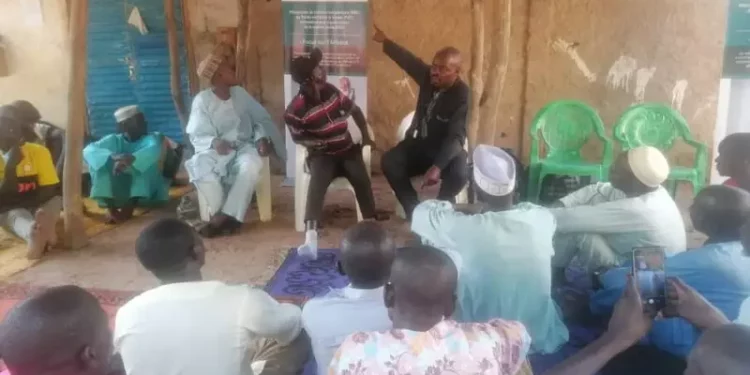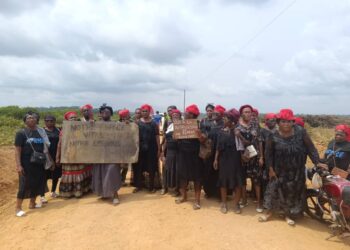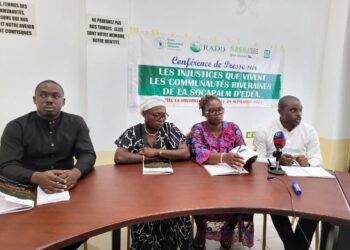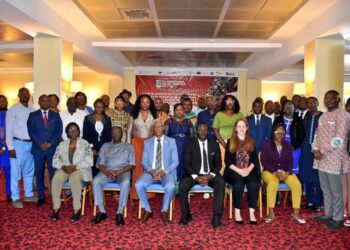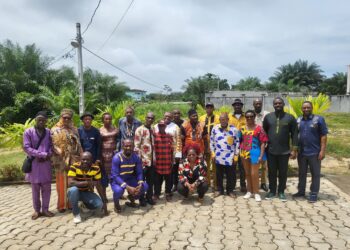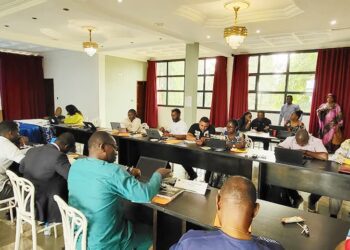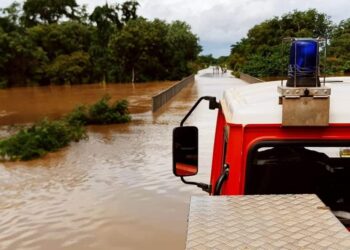Story, Louvier Kindo Tombe
On the 13th of October, 2023, the civil society organization, Young Volunteers for the Environment (YVE) Cameroon organized a workshop in Garoua, North region of Cameroon, to raise awareness on the existence of a climate instrument that addresses negative feedbacks and complaints from projects sponsored by the Green Climate Fund (GCF). The workshop was closely followed by a community field visit in lagdo, still in the North region of Cameroon. The objective was to meet with local community leaders and local authorities, and present to them the independent redress mechanism and how they can better use it to obtain climate justice.
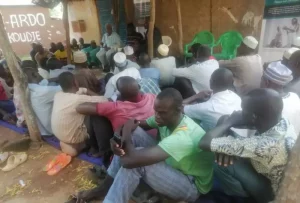
The activities were part of the Request for Quotation (RFQ) N°2023/006-A issued by the IRM of the Green Climate Fund (GCF), by which it mandated YVE Cameroon, to carry out an awareness, communication and information campaign on the missions and values of the IRM in localities impacted by projects financed by the GCF, with a view to strengthening its ownership.
The choice for these localities was not by chance. The FP092 project of the Integrated Programme for Development and Adaptation to Climate Change in the Niger Basin (PIDACC/BN) is being executed in the localities, and the impacts both positive and negative are felt by the locals.
Speaking on the occasion, the president of the CSO, Young Volunteers for the Environment (YVE) Cameroon, Blondel Silenou said “human rights due diligence cannot be conducted without appropriate channels”.
To him “the independent redress mechanism of the green climate fund is a perfect tool for communities to seek redress”.
The local community leaders praised YVE for educating them on the mechanism of redress and accountability in the face of negative impacts from GCF sponsored programmes.
“Young Volunteers for the Environment (YVE) Cameroon has opened us doors for grievance redress,” a local told News Upfront.
According to YVE, grievance redress and accountability thrive more through collaboration.
The IRM
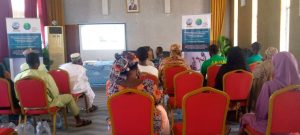
The Independent Redress Mechanism (IRM) addresses complaints by people who believe they are negatively affected or may be affected by projects or programmes funded by the Green Climate Fund (GCF). The IRM also accepts requests for reconsideration from developing countries whose funding proposals have been denied by the GCF Board. It works with stakeholders in a flexible and participatory way to resolve issues and address grievances. Problem solving can include information sharing and consultation, facilitation, mediation, joint fact finding, and other tools. The IRM’s practice is guided by the principles of alternative dispute resolution (ADR).
The goal of the problem solving process is to address specific issues that have given rise to the request or complaint, and to help identify and agree on solutions that meet the interests of the relevant parties. It typically involves clarifying the issues of concerns, understanding the needs and interests of stakeholders, assisting parties in identifying solutions, and helping them reach agreement on the terms of these solutions.
